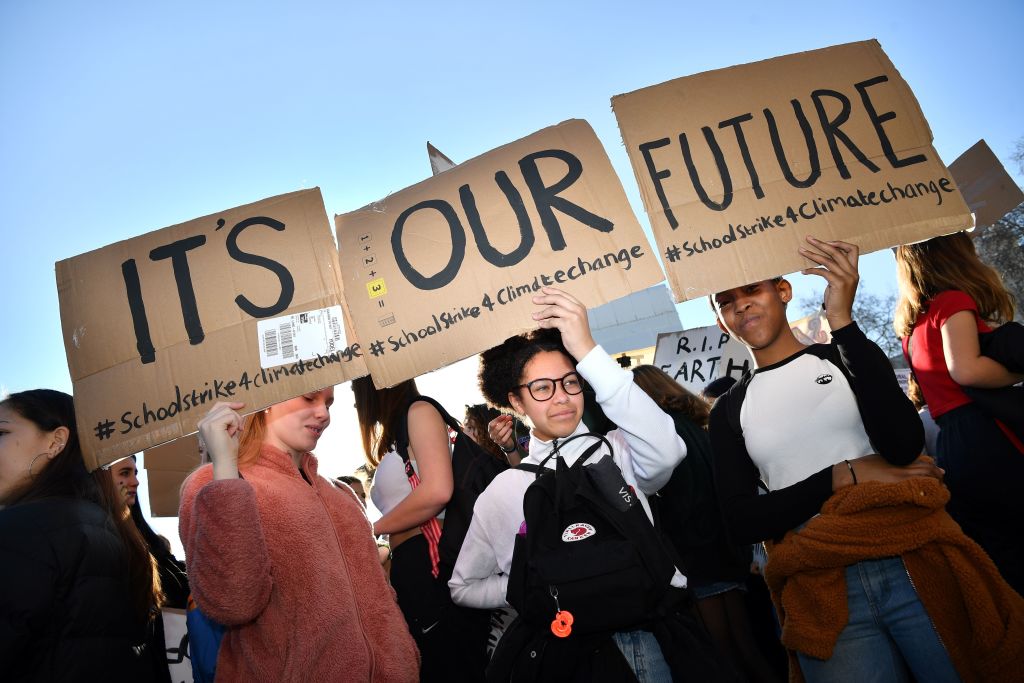The lawsuit had been brought by a group of young people to call on courts to declare that the Federal government had violated their rights and to order the government to put in place a plan to phase out fossil fuels in order to protect the climate. The amicus brief follows a January 2020 split decision by a panel of the Ninth Circuit reversing a District Court ruling in favor of the plaintiffs and dismissing their case. The brief argues this decision should be reversed as part of a new hearing.
“Human rights and the climate crisis go hand in hand. The effects of climate change will reverberate throughout our society, compounding inequalities and making it almost impossible for people to have access to the most basic of rights, such as clean air, clean water, and food,” said Zeke Johnson, Senior Director of Programs at Amnesty International USA. “The failure of governments to act on the climate crisis will deeply impact young generations, especially Indigenous Peoples and other communities already facing discrimination. The climate crisis may well be the biggest inter-generational violation of human rights in history. We’re thrilled to be standing with the Juliana plaintiffs as they fight for their future in court.”
“The Ninth Circuit has acknowledged the grave nature of climate harms facing the Juliana plaintiffs and the compelling evidence of the government’s role in those harms,” said Carroll Muffett, President of the Center for International Environmental Law. “For decades, courts around the world have recognized that when a government is systematically violating fundamental rights, the judicial branch has not only the authority but the affirmative duty to respond. The court sitting en banc should correct its error, and afford the plaintiffs–and the generation they represent–access to remedy and the opportunity for climate justice.”
“Norway, The Netherlands, Germany, Pakistan, Colombia, the UK. The courts in each of these countries have reviewed climate and environmental policies to ensure they adequately protected health and human rights. The courts of the US should do the same, as they have before on a wide range of human rights issues,” said César Rodríguez-Garavito, Visiting Professor of Clinical Law at NYU School of Law’s Global Justice Clinic.
The amicus brief argues that:
- The court must play its role in protecting the constitutional rights of people affected by climate change. It should declare unconstitutional government policies that are promoting fossil fuels and harm people’s rights.
- Virtually all courts outside the United States that have addressed climate change suits challenging government action have considered it appropriate to review whether the challenged policies abide by national laws and constitutional provisions.
- The brief notes that US courts have reviewed government plans in other areas where rights had been harmed, such as inadequately funded education, or standards of treatment for institutionalized people with mental illness.
- Accordingly, the Ninth Circuit’s January panel decision — that the judiciary cannot remedy the plaintiffs’ climate harms, leaving the issue purely to the executive and legislative branches — should be reversed, and the District Court decision’s to allow the case to proceed should be affirmed.
Counsel for the amicus brief were David Hunter, Attorney American University (Washington D.C.) and Dave Inder Comar, Business and Human Rights, Attorney (New York, San Francisco) and Executive Director of Just Atonement Inc. The brief was also co-signed by Curtis F.J. Doebbler, Attorney, Refugee and Immigrant Center for Education and Legal Services (San Antonio, Texas, USA), Research Professor of Law, University of Makeni (Sierra Leone), and Visiting Professor of Law, Webster University (Geneva); Margaretha Wewerinke-Singh, Assistant Professor of Public International Law, Grotius Centre for International Legal Studies, Leiden University, and Senior Lecturer in Environmental Law, University of the South Pacific; and Farhana Yamin, International Climate Lawyer, Founder Track 0 and Associate Fellow, Chatham House.
Amnesty International has previously intervened in litigation on the climate crisis before the Canadian Supreme Court in Canada and the Quebec Court of Appeal. It has also provided advice and support to other organizations carrying out climate crisis litigation in the Philippines and the Netherlands.
The brief is available here. For more information on the case, see https://www.ourchildrenstrust.org/juliana-v-us

